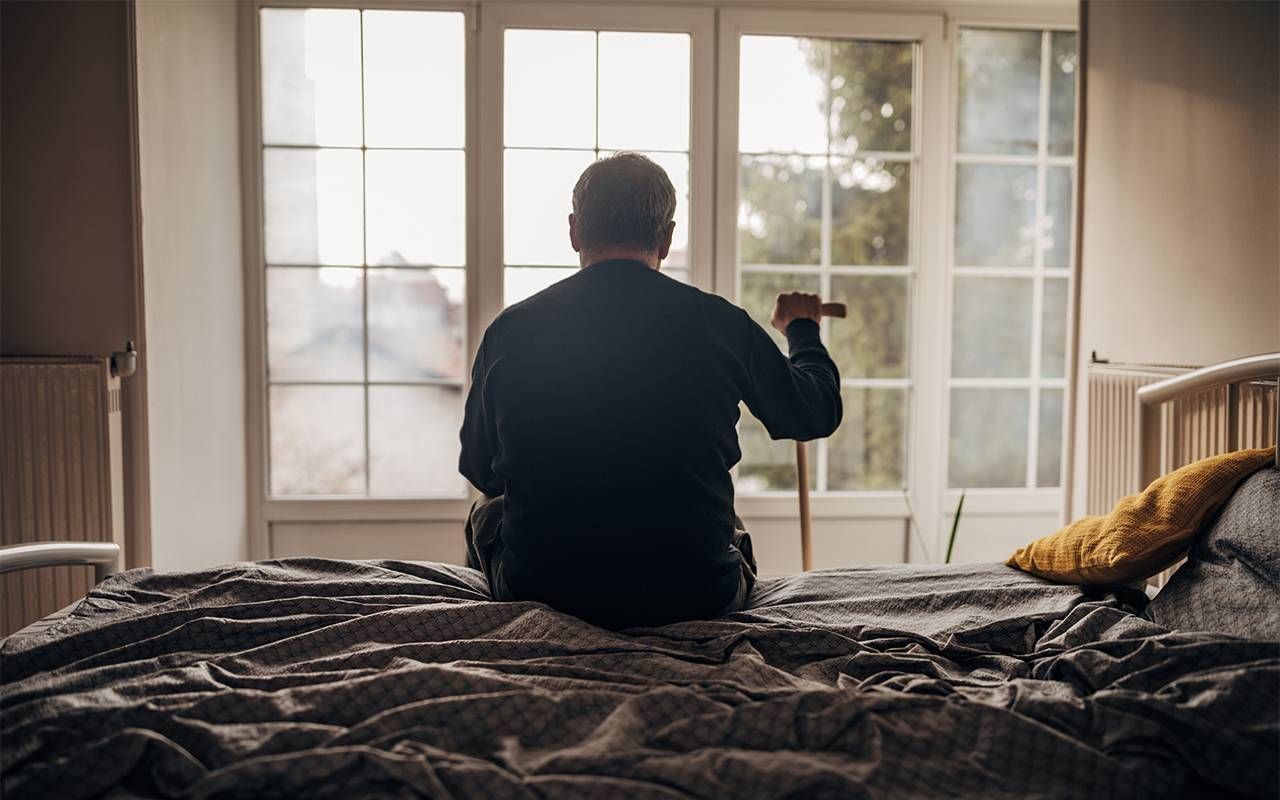The Particular Loneliness Facing Undocumented Older Immigrants
Many communities have developed social service programs to offer support and create connections
The last year and a half of social distancing and isolation left many older adults craving a hug from loved ones, quality time with family and friends, or visits with neighbors. But older undocumented immigrants face a unique type of loneliness that comes with uncertainty.
Since loneliness is already considered an epidemic in the United States, with one in three older adults being lonely, the well-being of older immigrants is threatened, especially when it comes to navigating health and old age.

Changing The Narrative
Immigration and older adults remain an under-reported story of aging in America. While nonprofits like Define American are working with institutions to help uplift immigration coverage, the complexity and nuances of immigration as it relates to loneliness remain overlooked.
Approximately 10% of the undocumented population is now older than age 55.
As society grapples with an epidemic of loneliness, where about one-third of Americans over 65 now live alone — and half of those over 85 do — undocumented elders are a hidden population that struggles with feeling lonely. In addition, approximately 10% of the undocumented population is now older than age 55.
Loneliness does not just boil down to increasing social connections; it also involves what systems are in place to create those relationships. For instance, having a less complicated health care system that immigrant elders can easily navigate, particularly those who need to be more fluent in English or have no documented residency status, is required.
One such place is Washington, DC's Community of Hope, providing quality, compassionate health care to patients regardless of their ability to pay. One of their goals is to provide a safe space for individuals without documentation and offer services on a sliding fee scale for those who can pay.
"I did not have insurance, but with the help of my social worker, she helped me get insurance. Now I can breathe a sigh of relief and am not alone," Milena Young (not her real name), 60, says.
The Need For Culturally Competent Healthcare
Older adults who identify with historically marginalized communities, such as people of color, documented and undocumented immigrants, and religious minorities, often feel apprehensive when health care systems ask for personal information.
They worry that if they give their information, the government will somehow come after them for one reason or another. Improving cultural competence in health care is critical in reducing health disparities and improving psychological well-being, but it also helps increase access by reducing fear or mistrust.
Ultimately the goal is to motivate and educate communities that might be less likely to obtain medical assistance. We need more community groups around the country to step up and help because the loneliness of navigating health care systems as an undocumented older adult is real.
Strategies For Navigating Loneliness
Getting creative regarding older undocumented immigrants navigating loneliness is no small feat. The immigrant narrative is complex and nuanced because only some have the same story. Hence strategies to navigate loneliness must always be dynamic and collaborative.
The immigrant narrative is complex and nuanced because only some have the same story.
Since older undocumented immigrants tend to live with family, their family members are primarily their support and safe spaces, but community-based support systems are also critical. Unfortunately, few organizations provide services specifically only for undocumented older adults.
Still, organizations like Immigrants Rising offers mental health services to all undocumented people who reside in California, Define American creates spaces that build a sense of belonging, El Concilio California has a Senior & Caregiver Legal Services Center that also addresses topics including advance health care directives, elder abuse matters and public assistance.
Moreover, a Fresno nonprofit, Cultiva la Salud, has been providing food boxes to local, low-income undocumented women 65 years and older through the pandemic and is currently accepting donations to keep the program going.
And it is not only specific to California. For example, Puentes de Salud (Bridges of Health) is a nonprofit that promotes the health and wellness of Philadelphia's rapidly growing Latinx immigrant population through high-quality health care, innovative educational programs, and community building.
Research has shown that empathy-focused telephone calls can also help overcome isolation and loneliness in older adults. The Senior Loneliness Line is a confidential, free service for Oregonians 55 and older who need to talk with another person.
Also, Meals on Wheels Central Maryland has a program, Call Connections, where homebound clients are paired with volunteers (Call Stars) for weekly phone calls that serve as check-ins and friendly conversation. Trained volunteers in empathetic conversational techniques may also be young adults, making the program intergenerational.
The goal is to motivate and educate communities that might be less likely to obtain medical assistance.
Before the pandemic, the Friendly Volunteer Companion program was also available, where volunteers visited with an older adult living in the community.
Volunteers and elders were matched based on interests, compatibility, and location. Hopefully, this program will resume soon as the pandemic continues to ease.
More solutions that may help older immigrants connect and engage with others include tapping into spiritual practices if they are people of faith. Community centers, YMCAs and support groups are also ways to deal with loneliness.
Beyond encouraging older immigrants to try to reach out and ask for help, families, friends or any other connections can also make the first step in helping them develop one-on-one relationships.
These solutions are not exhaustive and are just the tip of the iceberg. Since inequities exist among immigrant elders, more innovative and inclusive ways are needed to help older immigrants navigate loneliness in a world that generally seems to distrust and lack understanding.
The lives of older immigrants, both documented and undocumented, matter because everyone, regardless of immigration status, should have supportive communities and access to adequate health care to improve their overall health and well-being and ultimately reduce loneliness.

